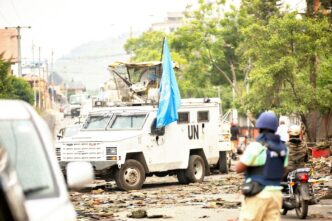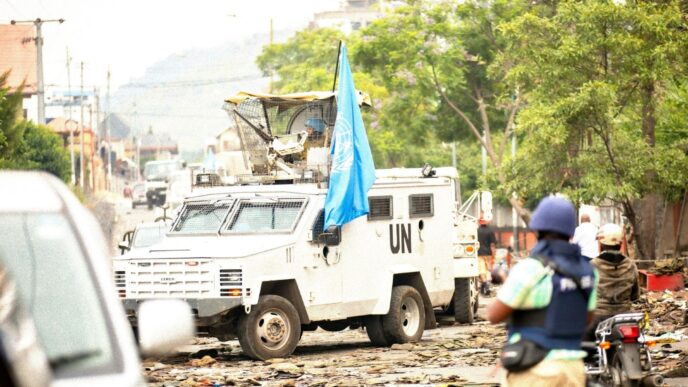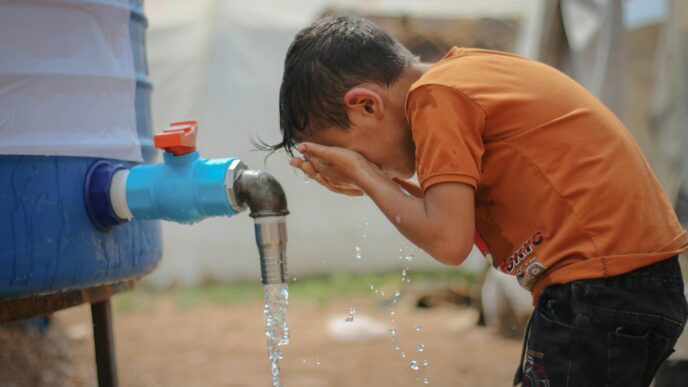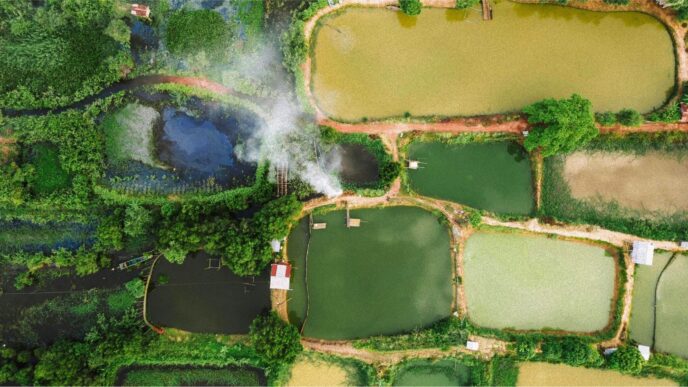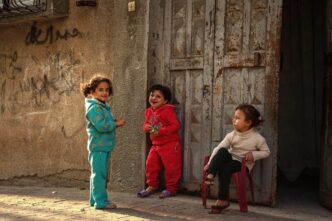Across the Muslim world, a stark paradox emerges. Some nations, like Malaysia, Turkey, and the UAE, have established themselves as economic powerhouses, boasting modern infrastructure, competitive industries, and rising standards of living. Others, like Yemen, Sudan, and Afghanistan, remain trapped in cycles of poverty, corruption, and conflict, struggling to provide even basic services to their citizens.
Why do some Muslim-majority nations flourish while others falter? The differences in wealth, governance, stability, and development are vast, yet these nations share common historical, religious, and cultural foundations. Is success a matter of leadership, governance, and strategic planning, or is it external interference, colonial legacies, and global economic structures that hold some nations back?
This article explores the factors that contribute to development success in some Muslim nations while examining the persistent struggles of others. It also asks whether Islamic economic principles, governance models, and ethical frameworks offer a more just and sustainable approach to development.
The Success Stories: Economic Growth and Stability in the Muslim World
Several Muslim-majority nations have managed to navigate economic modernisation, political stability, and human development to emerge as regional and global players. Their stories provide valuable lessons for struggling nations.
Malaysia: Balancing Tradition and Modernization
Malaysia’s transformation from a resource-dependent economy to a diversified industrial hub is one of the most compelling development narratives in the Muslim world. According to the World Bank (2022), Malaysia has maintained an average annual GDP growth rate of 5-6% for decades, moving from an agriculture-based economy to a leader in manufacturing, Islamic finance, and digital industries.
Key factors in Malaysia’s success include:
- Strategic economic planning, particularly through the Malaysia Vision 2020 Plan.
- Islamic finance leadership, positioning Malaysia as a global center for Sharia-compliant banking (Islamic Financial Services Board, 2023).
- Investment in education and technology, ranking Malaysia third in Southeast Asia for innovation capacity (Global Innovation Index, 2023).
Turkey: A Rising Industrial and Diplomatic Force
Despite political challenges, Turkey has emerged as one of the strongest economies in the Muslim world, blending industrial strength, technological advancement, and regional influence.
Turkey’s GDP surpassed $900 billion in 2022 (IMF, 2023), making it the 19th largest economy in the world. Its success stems from:
- Diversified economy, with strong agriculture, manufacturing, and defense industries.
- Geopolitical positioning, leveraging its role between Europe and the Middle East for trade.
- Infrastructure investment, including the Istanbul Airport and Turkish Airlines, making Turkey a global aviation hub.
The UAE and the Gulf Model: Turning Oil Wealth into Economic Powerhouses
The United Arab Emirates (UAE), Qatar, and Saudi Arabia showcase how resource wealth, when managed wisely, can drive long-term prosperity. Unlike some oil-rich nations that squander their natural resources, these countries have:
- Diversified economies, reducing dependence on oil by investing in finance, tourism, and technology (McKinsey & Company, 2022).
- Attracted foreign investment, creating business-friendly environments while maintaining cultural identity (World Economic Forum, 2023).
- Implemented visionary leadership models, focusing on infrastructure, education, and global influence.
The success of the Gulf states proves that natural resources alone do not guarantee development—sound governance and economic vision do.
The Struggles: Why Some Muslim Nations Remain in Crisis
In contrast, many Muslim-majority countries remain mired in economic stagnation, corruption, and conflict. Their struggles often stem from a mix of poor governance, external intervention, and failure to invest in long-term development.
Yemen: A Case Study in War, Famine, and Geopolitical Strangulation
Yemen, one of the world’s oldest civilizations, is now one of the poorest nations on earth. According to the United Nations Development Programme (UNDP, 2023), over 80% of Yemen’s population requires humanitarian assistance due to war-induced famine and economic collapse.
Key challenges include:
- Civil war, fueled by regional and global power struggles (Saudi-Iran proxy war).
- Humanitarian crises, where famine, disease, and economic collapse leave millions dependent on aid.
- Lack of economic infrastructure, making long-term development impossible.
Yemen’s tragedy illustrates how internal instability and external manipulation can devastate a nation’s development prospects.
Sudan: The Weight of Political Instability and Resource Mismanagement
Despite rich agricultural land and oil reserves, Sudan remains one of the most underdeveloped nations in the Muslim world. The African Development Bank (2023) attributes Sudan’s challenges to:
- Decades of dictatorship and military coups, preventing stable governance.
- Ethnic and regional conflicts, creating fragmentation and social unrest.
- Weak economic planning, with corruption and mismanagement crippling industries.
Afghanistan: The Long Shadow of Foreign Intervention and Internal Strife
Afghanistan’s struggles are a direct result of repeated foreign invasions, internal conflicts, and economic isolation. Challenges include:
- Four decades of war, from Soviet occupation to US-led interventions (World Bank, 2023).
- Reliance on foreign aid, without self-sustaining industries.
- Political instability, with governance shifting between external-backed regimes and resistance movements.
Afghanistan reflects how colonial legacies, war economies, and external interference prevent a Muslim nation from achieving development stability.
Governance: The Defining Factor in Development Success or Failure
If one factor determines a nation’s success, it is governance. Good governance fosters stability, innovation, and sustainable development, while corruption and mismanagement create perpetual crises.
- Strong leadership in Malaysia, Turkey, and the UAE has enabled economic growth and modernization (Transparency International, 2023).
- Corruption and dictatorship in Sudan, Afghanistan, and Yemen have led to instability and stagnation.
Islamic governance principles—shura (consultation), adl (justice), and amanah (trustworthiness)—emphasize ethical leadership and accountability. When applied effectively, they align with good governance models seen in developed Muslim nations.
Education and Human Capital: The Key to Sustainable Development
The most enduring measure of a nation’s success is its investment in human capital. Nations that prioritize education, innovation, and entrepreneurship develop resilient economies and stable societies.
- Malaysia’s investment in universities and tech industries has fueled its global competitiveness (Global Innovation Index, 2023).
- Turkey has built strong educational and vocational training systems, creating a skilled workforce (OECD, 2023).
- The UAE has become a hub for higher education and research, attracting global talent (UNESCO, 2023).
In contrast, countries that neglect education—whether due to war, poor governance, or underfunding—struggle to develop strong institutions and economies.
A New Development Agenda for the Muslim World
For struggling nations to break free from cycles of poverty and instability, they must:
- Prioritise good governance, transparency, and leadership accountability.
- Invest in education, technology, and innovation.
- Diversify economies beyond resource dependence.
- Adopt Islamic economic principles for wealth redistribution and ethical finance.
- Strengthen regional cooperation within the OIC and global Muslim networks.
The Muslim world has the intellectual, economic, and cultural potential to lead in global development—but only if the right lessons are learned and implemented.
Sources
- World Bank (2023). Global Development Indicators.
- IMF (2023). Turkey’s Economic Growth Report.
- Transparency International (2023). Corruption Index Rankings.
- UNESCO (2023). Education and Innovation in the Muslim World.
- UNDP (2023). Humanitarian Crisis in Yemen.


